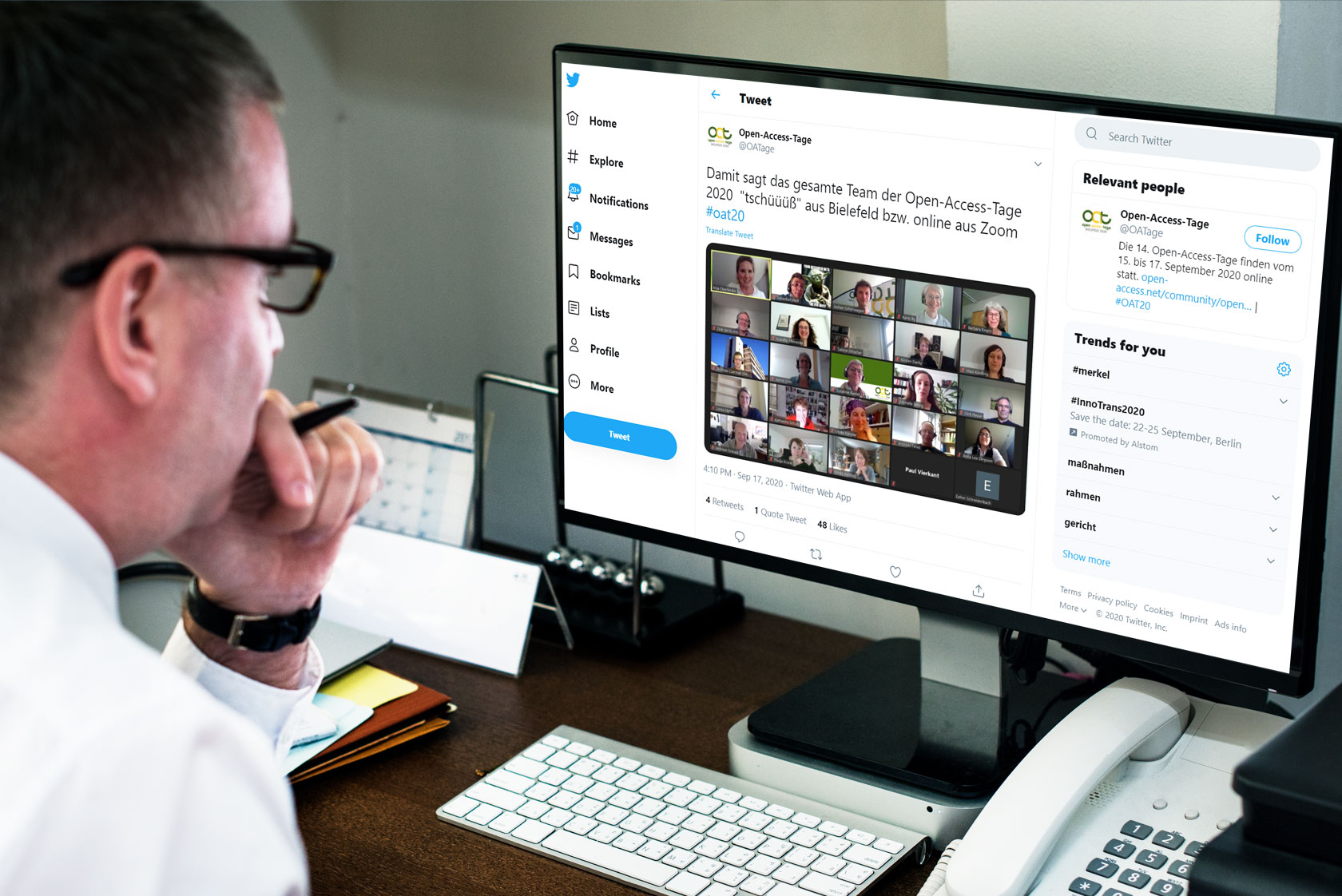
Open Access Days 2020: Highlights & Tips
The Open Access Days 2020 were held online for the first time under the motto “Routes, Stakeholders, Effects”. Bringing their personal perspectives to the event, four colleagues share their highlights – from bibliometrics to open source tools, to transformation contracts and networking.
by Kristin Biesenbender, Ralf Flohr, Olaf Siegert and Dr Nicole Waidlein
Die Open Access Days 2020 (German) took place from 15 to 17 September 2020 and were organised online by the Bielefeld University Library and the Library of the Bielefeld University of Applied Sciences, in partnership with the information platform open-access.net. The motto of the event was “Routes, Stakeholders, Effects” (German/English). We asked a few colleagues to summarise the highlights of the event for us from their perspective.
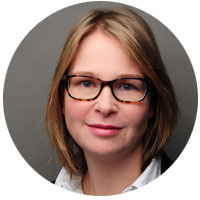
Workshop “Single-Source Publishing with Markdown, GitLab, pandoc and OJS: trying it out, discussing, and developing perspectives”
by Kristin Biesenbender
My event highlight in this year’s Open Access Days was the online workshop “Single-Source Publishing with Markdown, GitLab, pandoc and OJS: trying it out, discussing, and developing perspectives” (German). Various digital tools for open publishing processes were introduced here, from academic letters to the final publication in a journal.
One interesting approach is generating a source file in Markdown with the help of open source tools from which, using pandoc, a variety of output formats such as HTML, PDF, epub and many more can then be created. A procedure such as this enables modern workflows, which are also well-positioned for sustainable publishing in the future.
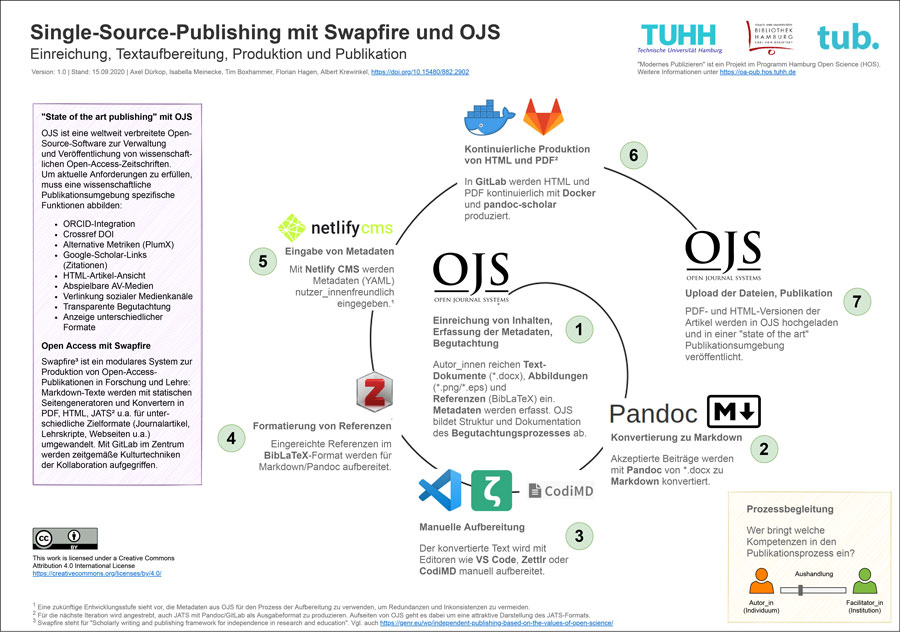
Alongside the very interesting technical aspects, this approach also takes into account the social, cultural and economic aspects that play a role in publishing. It is an open process in which the technical solutions always need to adapt to the subject culture, the self-perception of the scientists and editors, and the financial frameworks. It is clear that it is necessary and absolutely reasonable to exploit the technical potential of open source tools in order to implement modern workflows and support open science. This challenges the people who will work with them in the future on a social level. An exciting process.

Open access profiles of the universities and non-university science institutions in Germany
by Ralf Flohr
In the session “Open Access Monitoring and Bibliometrics” (German) Anne Hobert presented a study open access availability of scientific journal articles from German university and non-university research (German).
In the study, title data from the Web of Science dataset of the Competence Centre for Bibliometrics were analysed for the years 2010-2018. To ascertain the open access status of the publications, the article data were aligned with details from Unpaywall, the ISSN-3.0 list of gold OA journals (German) and OpenDOAR. The results of the study were then visualised very attractively in a publicly accessible interactive dashboard. In the dashboard, open access percentages of the research output for higher education institutes and research organisations can be ascertained – overall but also for individual institutions, and compared with one another. It is even possible to track how many publications have been made available via the gold or green route in OA. Although the restriction to journal articles from the Web of Science means that it is not possible to compile all characteristics of the publication behaviour of the institutions involved, the study nevertheless provides valuable findings on open access availability in German research. It also forms a good starting point for future analyses of the effects of the DEAL contracts.

Session: „Transformative agreements: Lessons learned and outlook“
by Olaf Siegert
This year’s Open Access Days included a session with highly qualified international experts on the topic of transformative agreements (German). These are licence contracts between academic institutions and specialist publishing companies that regulate not only digital access to specialist literature but also the open access publications of members of the academic institutions in the specialist journals of the publishing company (also often known as “read and publish agreements”). The experiences of six different European countries with transformative agreements were presented in the session: Sweden, Austria, Netherlands, Great Britain, Finland and Germany.
Various aspects of the transformation were highlighted in the presentations. For example in the presentation about the Netherlands, Arjan Schalken emphasised that the contractual negotiations and contract design represent only one important aspect of the overall process – the implementation of the contracts, both at national and local level in every academic institution was equally as important. So many different stakeholders are involved here (universities, libraries, publishing companies, the authors of the articles and many more) that even in a well designed contract the result is not automatically optimal. Good communication between all those involved is therefore of central importance.
Brigitte Kromp reported from Austria, for example, that during the changeover to a publication-based cost model the division of costs between the academic institutions involved is extremely important and there should be no friction during the transition. As a result, Austria pursues a strategy of not allowing any institution to have a cost increase of more than 10% per year.
Amy Devenny and Anna Vernon presented the situation in Great Britain, exploring especially the financial effects of the COVID 19 pandemic together with Brexit that affect Britain in particular and will lead to severe budget cuts. The British academic institutions have already published an open letter to the specialist publishers in which they appeal for a cost reduction of 25% for future licence contracts.
All in all it was a very worthwhile session for everyone who works in licence management and who cares about open access! Seeing the bigger picture is particularly useful to be able to classify the transformation activities in Germany better (for example, those concerning the DEAL project) and for planning steps for further development that build upon this.
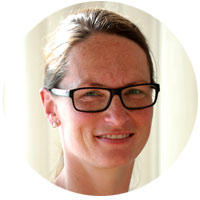
Workshop “Competence development and networking on open access – the new open-access.network platform”
by Nicole Waidlein
During the OA Days 2020, my event highlight was the workshop “Competence development and networking on open access – the new open-access.network platform” (German). In this workshop, the developments of the project open-access.network (German) funded by the Ministry of Education and Research, were presented and the questions and wishes of the OA community present were recorded. The platform open-access.network gives information on the many facets of Open Access to different target groups such as authors, publishers, libraries or publishing companies. I am particularly interested in how this platform will develop further and what programmes will be added.
There continues to be a lot of uncertainty in the OA community. In which journals can you publish? What are the legal consequences of all this for the authors? On the Open Access pages of journals, the financial situation is not explained sufficiently or with a long-term perspective. The world of open access continues to be confusing. I therefore recommend that anyone interested in Open Access or not familiar with it should take a look at the pages of open-access.network. The newly created forum is also available for your questions and discussions (German). For all those who would like to play an active role in advancing the topic further, the digital focus groups (German) are a place where to discuss special topics. There are also many educational and training programmes such as bar camps, workshops and webinars available, which will be very interesting for academics, scientists or also multipliers.
This might also interest you:
- Twitter Account Open Access Days (Open-Access-Tage).
- Presentations of the Open Access Days 2020 on Zenodo.
- Postersession from the Open Access Days 2020.
- Tool marketplace of the Open Access Days 2020 (German).
- Open Access Days 2019: Business models and their financial impacts for open access transformation .
- Open-Access Days 2018 – Part I: How is open access developing in the context of open science?
- Open Access Days 2018 – Part II: How does open access develop in individual disciplines and projects?
- Further Blogposts at ZBW MediaTalk on the topic of „Open Access“.
Kristin Biesenbender is a scientific editor of Wirtschaftsdienst at ZBW – Leibniz Information Centre for Economics and PhD Candidate at the University Hamburg in the field of sociology, especially science studies.
Portrait: Kristin Biesenbender©
Ralf Flohr is a scientific employee in the Publication Services Department and Content Manager of EconStor at the ZBW – Leibniz Information Centre for Economics. He can also be found on LinkedIn.
Portrait: Ralf Flohr©
Olaf Siegert is head of the Publication Services department and Open Access Representative of the ZBW – Leibniz Information Centre for Economics. He is involved with open access as part of his work at the ZBW and is also active for the Leibniz Association, where he represents the Leibniz Open Access working group in external committees. He is involved in the Alliance of Science Organisations in the working group Scientific Publication System and at Science Europe for the Leibniz Association.
Portrait: ZBW©
Dr Nicole Waidlein is academic editor of the journal Wirtschaftsdienst (German) of the ZBW – Leibniz Information Centre for Economics. She can also be found on ORCID.
Portrait: ZBW©, photographer Elisabeth Flieger
View Comments
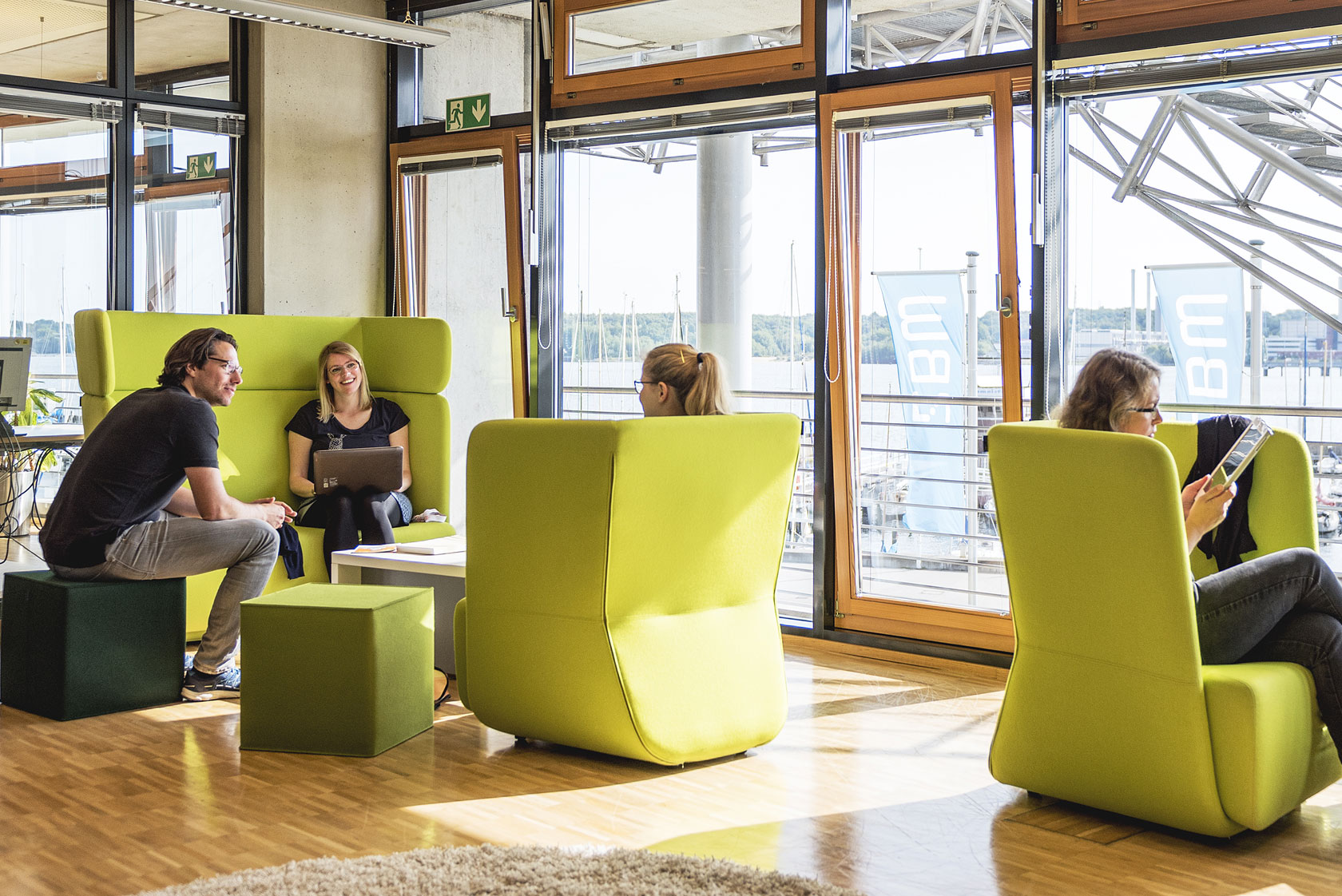
FOLIO Library Management System: Open Source on its Way into Everyday Library Life
FOLIO is an innovative open-source library management system. In 2020, it has reached...



